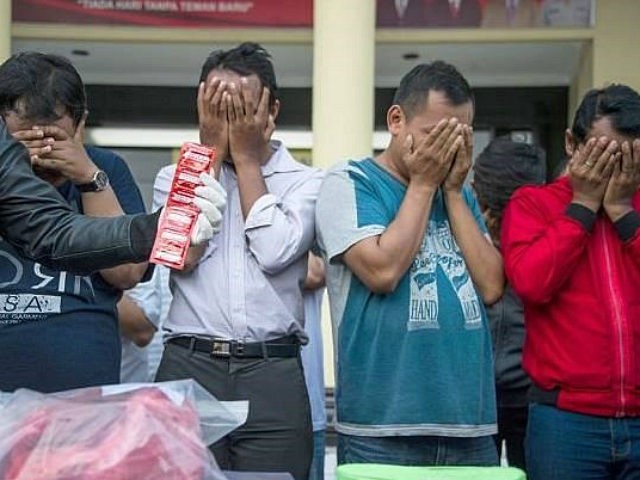The AFP news service reports that eight Indonesian men were arrested on Sunday after organizing a “gay party” at a hotel in Surabaya. Six were soon released, but the other two face charges that could bring them up to 15 years in prison.
Surabaya’s head detective, Shinto Silitonga, explained that the men were accused of watching gay pornography and performing “deviant sexual acts.”
The pornography is technically the big problem as Indonesia has very strict laws against it. However, Silitonga made it sound like more than a stringent anti-pornography bust when he told AFP, “This is the first time we enforce the law and arrest gay people in the city.”
“Except for Aceh province, which upholds sharia law, gay sex is not illegal in Indonesia, which mainly follows a criminal code inherited from former colonial ruler the Netherlands. However, there was a backlash against the country’s LGBT community last year with government ministers publicly making anti-gay statements,” AFP explains.
In the Aceh province, homosexuals are liable to run afoul of vigilante enforcers and be sentenced to corporal punishment by sharia courts. According to Human Rights Watch, 339 people were punished in Aceh for homosexuality with multiple lashes from canes in 2016, the first full year of implementation for the new sharia criminal code.
Some more background is provided by Asian Correspondent:
In February, Indonesia’s Education Minister Muhammad Nasir called for a ban on gay students in universities. Tangerang mayor claimed Indonesian children might become gay by consuming milk formula and instant noodles.
A spokesman for President Joko Widodo then declared in August 2016, “there is no room in Indonesia for the proliferation of the LGBT movement.”
Indonesia’s Defence Minister Ryamizard Ryacudu also went as far as claiming the LGBT movement was “a kind of modern warfare” by proxy, more dangerous than nuclear weapons.
Indonesia’s national anti-pornography law has been criticized as a vehicle for smuggling sharia values into the technically secular government of the world’s largest Muslim-majority nation. It has also been assailed by gay-rights activists for criminalizing homosexuality; its original 2008 incarnation explicitly did so, while even “softened” implementations of the law tend to classify online images of even the mildest homosexual conduct as pornographic. In 2012, one enterprising religious affairs minister used the anti-pornography law to ban miniskirts.

COMMENTS
Please let us know if you're having issues with commenting.